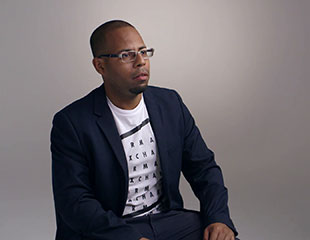“Do Not Shy Away From Those Difficult Conversations”
5-minute read
“Do Not Shy Away From Those Difficult Conversations”
5-minute read
It may seem obvious to family members and friends when their Veteran loved ones are experiencing mental health challenges and need to seek help and treatment, but it’s not always obvious to the Veterans themselves. They may not realize what’s happening or how they’ve changed. Even if they do, they may be reluctant to ask for help or feel wary of mental health care.
Your involvement and encouragement can make the difference, but it’s not easy. Learn how to ask thoughtful questions and provide encouragement. Discover what Gemini and Daniel, Andrew and Agatha, and Jacqueline and Mike learned from personal experience about initiation, persistence, patience and the rewards that come from starting the conversation and following through.
Gemini and Daniel: Starting the conversation
The first step of raising the subject is sometimes the most difficult one — a lesson that Gemini says she learned from her experiences with her husband, Daniel, a U.S. Navy Veteran, after he returned from his tours in Iraq.
“The most important piece of advice that I would give other family members would be to not shy away from having those difficult conversations,” Gemini says. “For the spouse, we have a tendency to try and fix things and to make allowances, and we can make a lot of allowances without even realizing that we’re making them. … Sit down with them, tell them what your concerns are.”
When Daniel returned home, he exhibited hypervigilance that was disruptive. “He couldn’t sleep in bed,” Gemini recalls. “He had to sleep sitting up to where he was able to see the door so that he could go up and do those nightly perimeter checks.”
Gemini could have kept “making allowances,” as she describes it, like saying, “Oh, he’s going to sleep downstairs tonight. Let me just get some more pillows and blankets.” But Gemini kept encouraging her husband to seek help. She finally broke through by telling him, “You’re a hero to your country. You’re a hero to your family. You really need to be a hero to yourself. You need to get the support you need and the help that you’ve earned.”
Daniel listened to her advice, and the changes enabled by his counseling and other treatments have been dramatic. “He was able to go to bed at a normal time. He could sleep through the night. The perimeter checks stopped,” Gemini says. “He was more comfortable, he was more relaxed, he was able to laugh more often. It was like we had the old Daniel back.”
Andrew and Agatha: Persuasion through persistence

Keep on talking and showing support
Andrew could have stopped asking. When his mother, Agatha, returned from her U.S. Army deployments, he noticed that her personality had changed. She had become secluded and didn’t want to talk to anyone.
“What’s wrong?” he would ask her.
“It’s nothing. I can’t talk to you about it,” she would reply.
“I would get frustrated because I wanted to help, and I didn’t know how to,” Andrew says. But he persisted and eventually gave her an ultimatum: “Either you talk to me or you find somebody else that you can talk to, or there’s nothing I can really do for you.” Agatha recalls that Andrew also said he would leave if she didn’t get help.
Agatha describes that moment as the turning point that convinced her to seek treatment for the severe anxiety that had been plaguing her since she returned home. Her counseling helped her learn how to cope and do positive things for self-help, like writing poems, reading the Bible, performing community service and becoming a chaplain who counsels other Veterans. She’s also no longer reluctant to ask Daniel for help or let him know what she’s going through.
“It’s been a drastic change,” Andrew says. “Even though it may seem challenging, just keep on talking to the person, keep on showing support,” he advises. “Don’t give up.”
Jacqueline and Mike: Encouragement during treatment
Jacqueline helped convince her husband, Mike, a U.S. Army Veteran, to seek help for his mental health. She learned that she also needed to continue to provide him with encouragement in finding the treatment or treatments that were best suited for him.
“Don’t give up. Try everything you can possibly find,” Jacqueline advises other Veterans and their family members. “There aren’t any hopeless situations. You’ve just got to find that one thing that works.”
Finding that one thing didn’t come easily for Mike, who experienced forgetfulness, agitation and depression after he returned home with severe physical injuries from a rocket attack. Mike tried numerous types of treatments for his traumatic brain injury and posttraumatic stress disorder, with varying degrees of effectiveness. Medications and talk therapy, for example, didn’t suit him. But with art therapy, he struck gold.
“In art therapy, I didn’t have to talk. If something was bothering me, I just had to figure out how to say it in paint,” Mike says.
“People think that it’s painting your feelings and playing with arts and crafts, but it’s deeper,” Mike adds. “You’re addressing pain and trauma. The therapists, they’re not just the arts and craft supervisors; they’re behavioral health professionals trained to see and read what you put on the canvas.”
By continuing to pursue treatment until he found the right one, Mike became happier and more engaged with his wife and children. “It felt like a fresh life as a family once he started art therapy,” Jacqueline says. “Whenever you find that one thing, it’s so worth the fight.”
